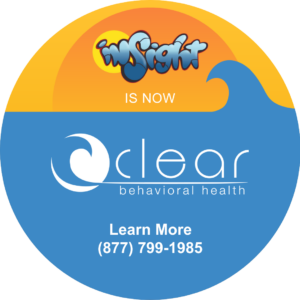Addiction treatment is assumed to be a long recovery from excessive drug or alcohol use, but the psychological effects of guilt, shame, and embarrassment also require care. For an extended period of time, the person has been more focused on addictive behaviors than the impact and appearance of the addiction.
Staving Off Substance Abuse Shame
There are significant differences between guilt, shame, and embarrassment. It helps to define and understand these emotions that can bump into each other in our minds.
Guilt: I did a bad thing.
Shame: I am a bad person.
Embarrassment: I made a mistake and other people know it.
Guilt could be the driving force to confession and cries for help, while shame is an evil mistress who cloaks the person into silence. Shame leads to anxiety and depression, which often drives a need for substance use.
To further complicate the recovery process, it could have been guilt, shame, or embarrassment that led a user to the substances in the first place. Now the recovery must deal with co-occurring conditions with mental and physical healing.
Your addiction recovery will help you learn how to cope with guilt, shame, and embarrassment as a life skill.
The Power of Affirmations and Meditation in Dealing with Shame
Drug addiction and substance abuse cause physical changes to the neurons in the brain. You will have to literally battle your brain for control of your life. The more a person who suffered from addiction used, the more severe the damage can be.
Your body’s response and healing processes will take care of some damage, but you have to also seize control of your mind. That’s where affirmations and meditation can help. Start with the moment you wake up and commit to daily affirmations. Read and repeat:
“I can do this, I will not give up, I am stronger than my addiction, I deserve to be sober and heal, I choose to release shame and focus on recovery.”
Accepting Substance Use Disorders as a Disease
It’s hard for some to accept that drug abuse problems and alcohol addiction are diseases. The stigma of an addict leads to powerful emotions and bad feelings. You can experience less shame by owning your mistakes. Stop referring to yourself as an addict or someone addicted to prescription pain relievers.
Everyone in the general population deals with some kind of struggle that elicits shame. Since shame is innately hidden, we don’t see it in others. Part of the 12 Step Program through therapy and support groups will be admitting your mistakes and making amends.
Mental Health Conditions and Withdrawal Symptoms
A mind in recovery from substance use disorder is a tangled web that needs to be re-programmed. Even during recovery under medical supervision, a person can feel judged or shamed as the withdrawal symptoms kick in. This is part of the healing process, and you might face more bad feelings as you come to grips with the reality of your actions during addiction treatment.
Keep this in mind as you battle the harmful consequences of your severe addiction – 75% of people recover from the disease, according to the Centers for Disease Control and Prevention, and the remorse is not not as visible as the addiction once was. You feel like people around you can see your shame, yet you walk by people facing the same diagnosis every day and don’t realize it.
How To Cope During Addiction Treatment
There is no shame in seeking help and recovery, much like a cancer patient has no shame about getting chemotherapy, or a diabetic has anxiety about pumping insulin in public. For the small segment of the population that judges addiction, there’s a much wider breadth of community support.
Realizing you need help is only the first stage. You now face mental disorders potentially triggered by altered brain chemistry.
Depression: Up to 64% of people in recovery battle depression. You might also have a genetic predisposition to depression. You cannot control the chemicals in your brain, but you can control the desire to seek addiction help when struggling.
Anxiety: For those struggling with anxiety, bring this up at treatment facilities to see if you also have Generalized Anxiety Disorder. Co-occurring disorders are quite common during drug addiction.
Trauma: During drug use, people can experience traumatic events that are numbed by the substance. Coping with PTSD hurt is also critical during recovery.
Guilt: Staying in a mental prison of guilt will only fuel anxiety and depression. Patients should be encouraged to communicate with family members and hear what each family member has to say to them. Speaking your guilt and offering apologies is one of many treatment approaches to deal with this emotion.
Shame: It might get worse before it gets better, but know that shame is a temporary feeling. When you give it sunlight and air, it suffocates. Addictions feed off the dark places in our minds and lives, so keep focused on recovery and open communication.
Embrace the Rewarding Effects of Recovery
Journaling is a great way to unmask the demons of drugs that once infiltrated your life. It’s a private yet open space to explore your feelings. It’s important to have mindfulness when you start feeling bad. Be in the moment and explore it without judgment. Don’t think about an example of past bad behavior. Don’t think about the temptation when you’re back in society. Simply focus on what is happening right now and identify what is special about this moment.
Other ways to focus on the rewards of recovery and not the side effects include:
Practice Self Care: Don’t let your self-esteem drag you into a place where you have poor quality hygiene. Set one small goal if this seems challenging, like “I will shower for three minutes each day.” Setting and achieving one small goal gives you the confidence you can tackle another one.
Stop Blaming Yourself or Others: We should be able to identify the triggers that brought a person to seek the substance that impacted lives. You might blame yourself or your parents, and they might blame the bartender that poured your first drink. Assigning blame fixes nothing. Accepting responsibility and identifying ways to avoid future triggers is a great part of family therapy.
Visualize Shame: Put a face, color, or object on the shame you feel. Give it a name. Then imagine putting that item into a hot air balloon and meditate while you let it go while watching it drift into the skyline. You could also visualize putting it into a locked steel box and dropping it in the deep ocean. You can acknowledge something without ruminating on it.
Don’t Expect Miracles: The true miracle is that you are seeking any kind of support. There will be days you don’t want to talk. Ask a health expert what other resources are available when you’re not in the mood for discussion.
Build Better Behaviors: If watching an action film makes you crave a drink, find a new genre. If you always had a drink with your best friend from high school, invite them to a therapy session to learn how you can keep building a bond without presenting triggering activities.
Ask About Medications: For those who get medications during recovery, you should know exactly what the drug does, what side effects happen, and what risk there is of dependency. Finding the right medication to help improve mental health and behavior can take time. You should be educated on the process.
Let Your Desire for Help Be Stronger Than Your Shame
Clear Behavioral Health clinicians are expertly trained to help you heal. These are people who dedicated their lives to fostering a culture of healing, and that’s a space that doesn’t have room for shame or guilt. Our addiction services are available for you, your family, and any loved ones dedicated to your recovery process. Even those who struggled with high doses of substance abuse can heal. We’re waiting for your call at 877.799.1985.

